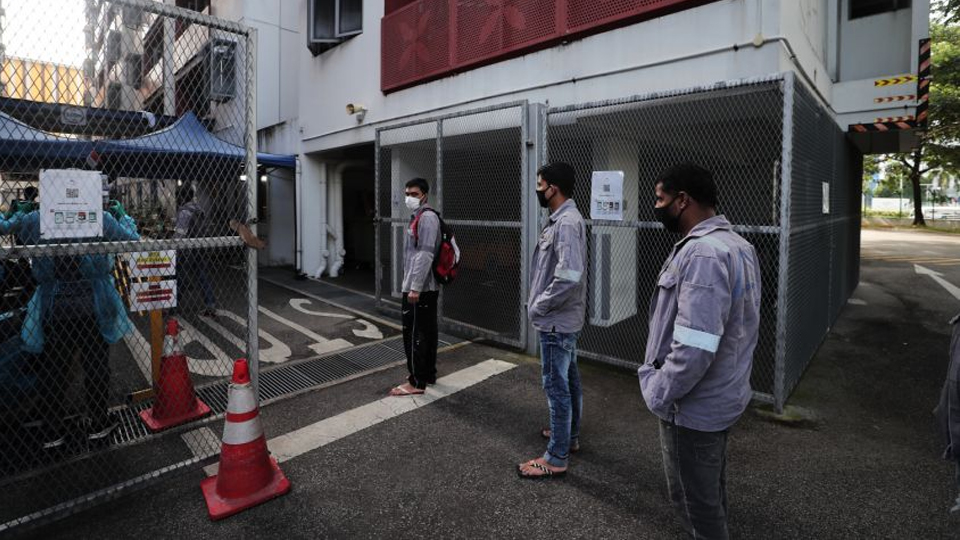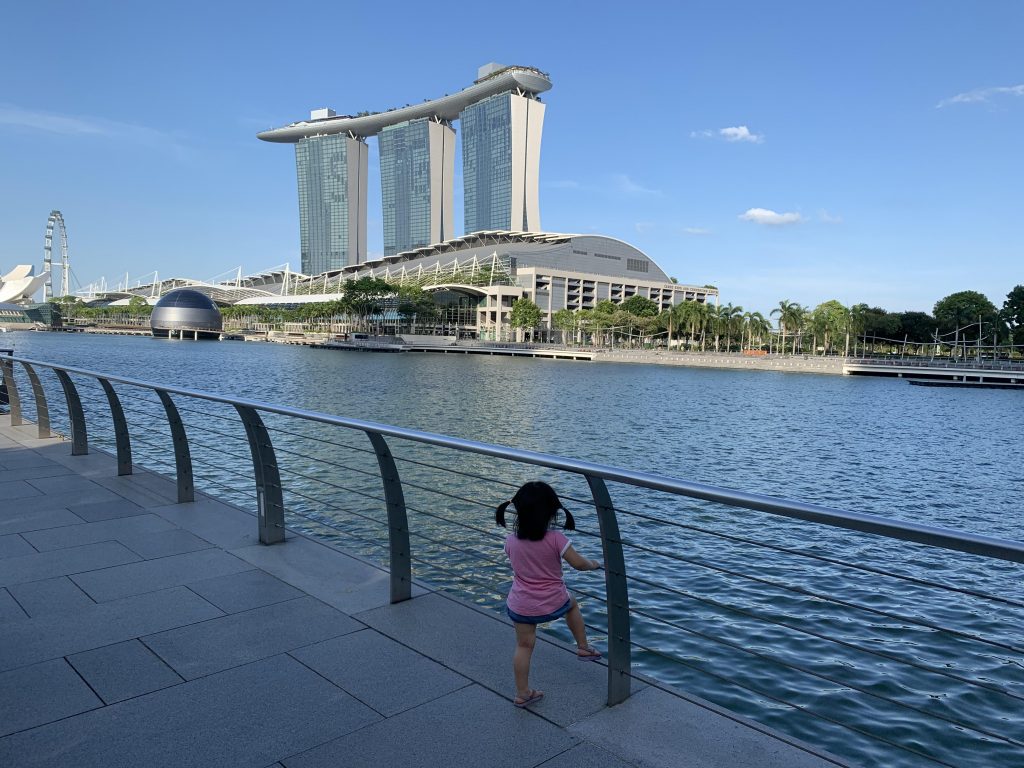Before Singapore Exits Circuit Breaker, Let’s Reflect On Our Biases Against Migrant Workers

By Tam Wai Jia
“It’s okay to break circuit breaker rules, this is a migrant worker problem anyway.”
I heard this spoken by a passerby one afternoon on my way home, after volunteering as a frontline worker at a migrant dormitory, my N95 mask and goggle marks still etched on my face.
Since then, the segregation between “them” and “us” seems to have grown.
I have been travelling between two worlds — one at work, where I don personal protective equipment and see migrant workers as a doctor, explaining in simple English, sometimes with a translator, what the quarantine measures mean and what the future holds; the other, where I overhear lift banter of when one might next expect to have bubble tea again.
I rush home to two rambunctious toddlers aged three and one, oblivious of this new world in which we live.
“Mama, when the cowona-virus is over, you will take me to sit on the swing,” says my three-year-old emphatically.
That afternoon, I was reminded of the reality that while these two worlds had always existed, one has been largely hidden beneath our harried lives.
As we prepare to exit the circuit breaker, I’ve been wondering about the message that many of us have been hearing: “Be vigilant. Don’t let our efforts go to waste.”
I also wonder if we have made full use of the pause in our lives to reflect on the gravity of the outbreak amidst our migrant worker community, and our part in it.

For if we race towards normalcy in our lives, I fear we might have had wasted the treasured opportunity this circuit breaker had provided for us to engage in self- examination, as individuals, and as a nation.
“You’re a young lady, spending time with migrant workers is not appropriate.”
“Don’t you understand, they’re having it much better here than they ever would have had it otherwise.”
“Why has the migrant worker problem not sorted itself out?”
Of late, these have been some of the chides I have been hearing, as I transited from my role as a medical educator to a frontline public health doctor at migrant worker dormitories and community care facilities, curating multilingual health communication resources and conducting health engagement sessions for them.
Such comments, while appearing valid, reflect innate biases and assumptions made towards our migrant brothers.
“Doctor,” one migrant worker told me, “thank you for visiting us. Singapore Government is very good. Doctors here all very good. We will be strong. Thank you for looking after us.”
I held back tears behind my foggy goggles and N95 mask.
As I reflected on a photo of my three- year-old daughter admiring the Singapore skyline just before the circuit breaker started, I mused over the story I would tell her about mama’s country, what made it distinct from papa’s Canada, through the outbreak she had lived through.
I gazed at the spectacular buildings and pondered upon the many lives that had a hand to play in smoothing those cement floors, tiling the offices, sculpturing the trees. I pondered over the trajectory those lives took, to land in ours in such a time as this.
Dreamily, I watched my three-year-old pointing at the Merlion and wondered about the narrative I would share with her about living through COVID-19 when she was older.
Would I tell her a two-dimensional story of self-righteous meritocracy and dogged success amidst trials; or would I have the chance to tell her a more nuanced but no less glorious narrative of introspective discovery and compassionate inclusivity?
For I have seen how some of our migrant brothers have lived—and those images cannot be erased. Like a movie with special effects gone wrong, they are played over the backdrop of the beautiful Marina Bay skyline and a bleeding sunset in my mind.
Yes, we cannot dismiss the outpouring of love of several groups. Donors and charities have generously stepped up to provide fans, food and masks; churches have adopted dormitories to meet the physical needs of migrant workers and many non-profits and healthcare groups have developed virtual befriending platforms to ease the mental burden of our migrant friends.
Yet, I wonder, if as individuals, we might still be a little too eager with resuming our own lives without sufficiently addressing the burdens carried by our migrant workers, burdens which reflect prejudices our society has built on over the years to keep them “out of sight” and “out of our backyards”.
Don’t get me wrong. I, too, miss my privileges—to take my toddlers to the playground, to take them to the food court to have a (gasp) decadent ice kachang, to take them out on play dates again.
Nonetheless, as we gripe about the challenges of home-based learning and working from home, have we paused to also empathise with our migrant brothers who worry about when they can return to work?
As we complain about not being able to leave home, have we paused to think of our brothers who cannot step out of their rooms, shared with many other men, in living quarters that could use just one more fan?
“Doctor, today was very, very hot in our room,” is something I often hear them say.
I bristle at comments made in jest by some —“the migrant workers should be happy to receive money when they need not work” —reflecting with heart-wrenching oblivion the lack of insight to the challenges of being quarantined away from home, and transferred from one facility to another, without a full grasp of ever-changing rules in a slippery pandemic.
As individuals, let’s examine the thoughts we’ve held against the people who’ve built our nation with us. Let’s volunteer for migrant worker befriending services and prepare our hearts to smile at them instead of shunning them when they resume work.
And as a nation, let’s journey with them. Let us remember that they, too, are an intrinsic part of the fabric of our Singaporean community.
More than a time to deal with the virus, perhaps it is also a time to deal with our hearts.
Let’s not waste this great opportunity to rewrite the Singapore narrative with genuine contrition, deep compassion and great love.
About The Author
Tam Wai Jia is a medical doctor with a background in public and global health. A Lee Kuan Yew Scholarship holder, she is the founder of Kitesong Global, an international non-profit that empowers underserved communities.
This article was first published in TODAY Online, 29 May 2020.
